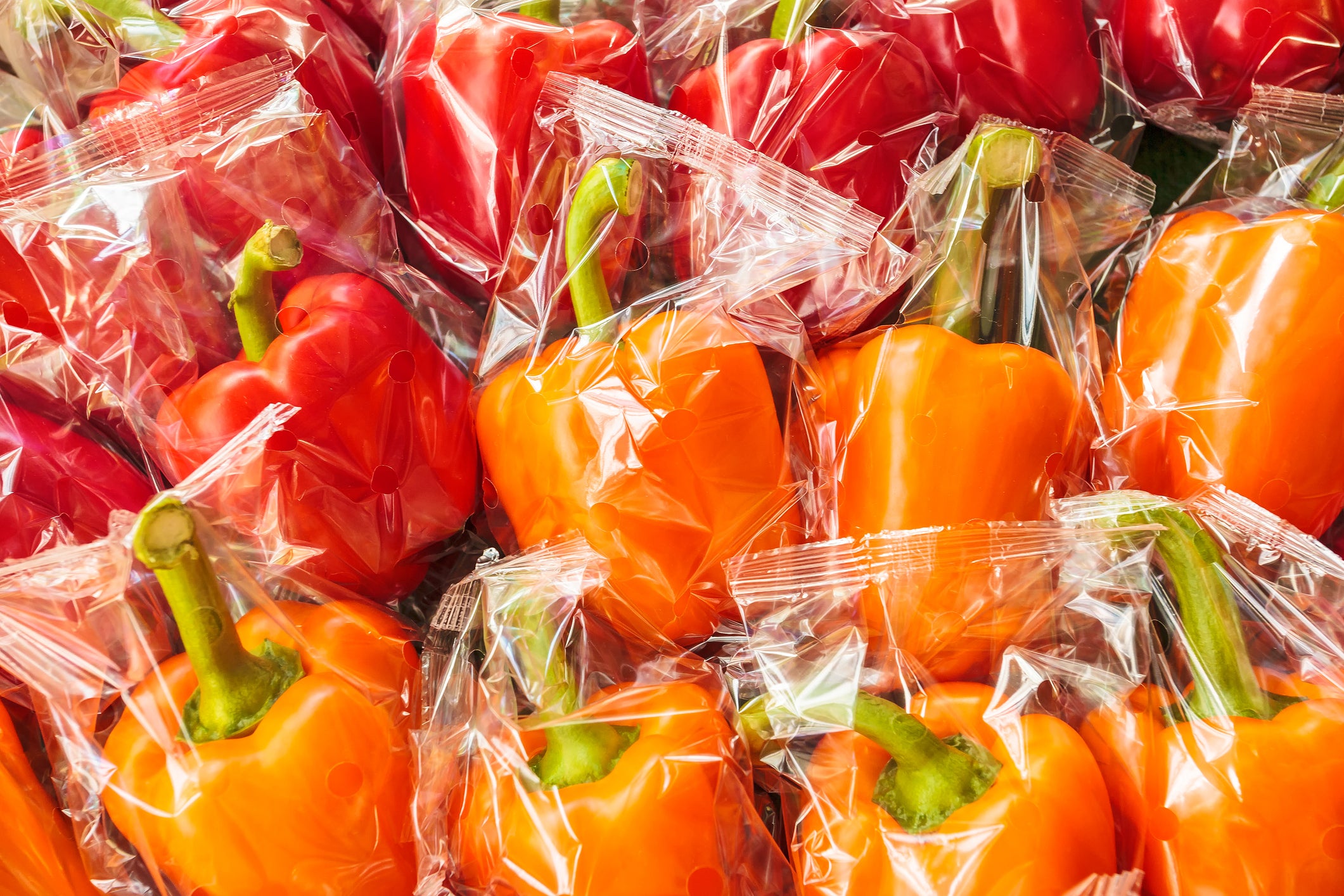France to ban plastic packaging for fruit and vegetables from January 2022
Law to axe plastic will cut more than one billion pieces of plastic waste a year

Your support helps us to tell the story
This election is still a dead heat, according to most polls. In a fight with such wafer-thin margins, we need reporters on the ground talking to the people Trump and Harris are courting. Your support allows us to keep sending journalists to the story.
The Independent is trusted by 27 million Americans from across the entire political spectrum every month. Unlike many other quality news outlets, we choose not to lock you out of our reporting and analysis with paywalls. But quality journalism must still be paid for.
Help us keep bring these critical stories to light. Your support makes all the difference.
France is to ban plastic packaging for almost all fruit and vegetables to curb ‘outrageous’ levels of waste wrapping, the use of which is worsening both the climate and the environment.
The government said it expects to prevent the use of more than one billion plastic packages a year when the new law takes effect on 1 January.
A list of around 30 fruits and vegetables which are subject to the changes has been published, and includes leeks, courgettes, aubergines, peppers, cucumbers, potatoes and carrots, large tomatoes, onions and turnips, cabbage, cauliflower, squash, parsnips, radishes, and root vegetables, the ministry said in a statement.
Further items will be added to the list over the coming years, with more delicate fruits such as berries being banned from sale in plastic by 2026.
“We use an outrageous amount of single-use plastic in our daily lives. The circular economy law aims at cutting back the use of throwaway plastic and boost its substitution by other materials or reusable and recyclable packaging,” the environment ministry said.
It estimated that in total, 37 per cent of all fruit and vegetables sold in France are currently sold with plastic wrapping.
But the French fruit sellers federation president Francois Roch has said the switch away from plastic to alternatives such as cardboard would be difficult to achieve in the coming months.
“Also, selling loose produce is complicated as many customers touch the fruit and people do not want their fruit to be touched by other customers,” she said.
The packaging ban is part of a multi-year government programme to phase out plastic. From 2021, France banned plastic straws, cups and cutlery, as well as styrofoam takeaway boxes.
Fruits which are sold already cut up, as well as a limited number of delicate fruits and vegetables can still be sold with plastic packaging for now but that will be phased out by the end of June 2026.
Plastic packaging will be banned by the end of June 2023 for cherry tomatoes, green beans and peaches, and by the end of 2024 for endives, asparagus, mushrooms, cherries, and some salads and herbs.
From the end of June 2026, raspberries, strawberries and other delicate berries must be sold without plastic.
Also, from 2022, public spaces in France must provide water fountains to reduce the use of plastic bottles, while press and publicity publications must be shipped without plastic wrapping, and fast-food restaurants will no longer be able to offer free plastic toys.
From January 2023, France will also ban throwaway crockery in fast-food restaurants for meals consumed on-site.
Conservationists in the UK have said they want to see similar legislation introduced to curtail use of unnecessary plastic packaging here.
Friends of the Earth plastics campaigner Camilla Zerr told The Independent: “The proposed ban on unnecessary plastic packaging for fruit and veg in France is a great initiative that the UK government should follow.
“Unfortunately, loose fruit and vegetables are still not widely available, which makes buying produce without needless wrapping almost impossible. We shouldn’t have to buy plastic we don’t want, especially when we know it’ll inevitably add to the plastic pollution crisis blighting our planet.
“Despite some promising progress, plastic remains a huge threat to our environment and wildlife. Ministers must get tougher so that our supermarket shelves no longer dictate the amount of plastic in our lives.”
Additional reporting by Reuters.
Join our commenting forum
Join thought-provoking conversations, follow other Independent readers and see their replies
Comments